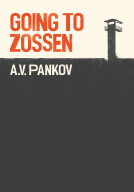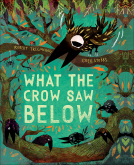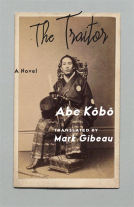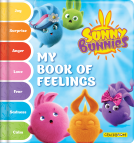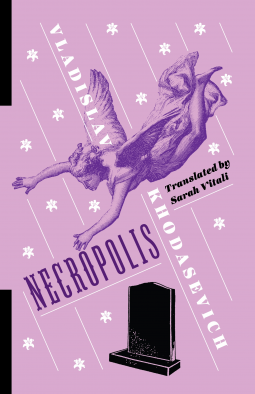
Necropolis
by Vladislav Khodasevich
This title was previously available on NetGalley and is now archived.
Send NetGalley books directly to your Kindle or Kindle app
1
To read on a Kindle or Kindle app, please add kindle@netgalley.com as an approved email address to receive files in your Amazon account. Click here for step-by-step instructions.
2
Also find your Kindle email address within your Amazon account, and enter it here.
Pub Date May 28 2019 | Archive Date Jul 28 2019
Talking about this book? Use #RussianLibrary #NetGalley. More hashtag tips!
Description
Written at various times throughout the 1920s and 1930s following the deaths of its subjects, Necropolis is a literary graveyard in which an entire movement, Russian Symbolism, is buried. Recalling figures including Alexander Blok, Sergey Esenin, Fyodor Sologub, and the socialist realist Maxim Gorky, Khodasevich tells the story of how their lives and artworks intertwined, including a notoriously tempestuous love triangle among Nina Petrovskaya, Valery Bryusov, and Andrei Bely. He testifies to the seductive and often devastating power of the Symbolist attempt to turn one’s life into a work of art and, ultimately, how one man was left with the task of memorializing his fellow artists after their deaths. Khodasevich’s portraits deal with revolution, disillusionment, emigration, suicide, the vocation of the poet, and the place of the artist in society. One of the greatest memoirs in Russian literature, Necropolis is a compelling work from an overlooked writer whose gifts for observation and irony show the early twentieth-century Russian literary scene in a new and more intimate light.
Advance Praise
"An incisive set of memoirs of leading lights of Russian Symbolism and its aftermath (1890s–1920s). Khodasevich’s intimate accounts of several writers (Briusov, Bely, Blok, Esenin, Gorky, and lesser figures) are framed within the notion of “life-creation,” which he deems crucial to a conceptualization of the modernist period. A stylish, inventive translation of a key text."
—Robert P. Hughes, University of California, Berkeley
"In Necropolis, the émigré poet Vladislav Khodasevich looks back—now wistfully, now bitterly—on the major writers and movements of Russian culture in the pre- and immediate post-revolutionary years. In Sarah Vitali’s splendid translation, this masterpiece of memoir literature is finally accessible to the Anglophone reader."
—Michael Wachtel, Princeton University
Available Editions
| EDITION | Other Format |
| ISBN | 9780231187053 |
| PRICE | $19.95 (USD) |
Average rating from 11 members
Featured Reviews
Khodasevich memorializes a series of significant Russian literary figures, producing an "insightful obituary" not only of the era, "Russia’s literary Silver Age", but also of the authors that shaped Russian literary tradition.
 John L, Reviewer
John L, Reviewer
Three and a half stars.
This publishing strand has either frustrated me or made me really quite pleased, depending on the results from its expeditions into the depths of long-tail Russian literature. Certainly even the more audience-friendly pieces in their output aren't exactly going to rush off the shelves. But here they would appear to have excelled themselves, and plumbed even further, for we have a collection of essays, by a bloke we've never heard of, all in response and in memoriam to the lives of Russian and Soviet authors we've mostly never heard of, all of whom were connected by one artistic style, which – yup, you guessed it. But actually in getting the pieces in this order, we almost get a novelistic narrative. Certainly the book reads as if it might as well be a novel, so little do we know of these characters before finding them here. We open with a woman who suffered a lot of tragedy, partly at least a result of two men – and we then encounter those each in turn, with their own lives to be conveyed. Yes, I had heard of Blok, and of course Gorky, but what we get from our ignorance is a kind of construction of linked short stories, and as a result the book is actually a lot more readable by the average audience member than it would at first appear. No, not all the chapters completely fit my theory, and no novel would have as many people top themselves as here. But still, likes and dislikes, affairs, publishing or rubbishing, these authors did a lot in concert or in opposition with each another, and the details of those here may be dry, and intended to be academic and educative, but I also found them to be woven together just as tightly as any fictional iteration of the same contents. For that surprise I think this is one of the more intriguing volumes from this imprint, even if it will still never appeal to many.
 Bryn H, Reviewer
Bryn H, Reviewer
'Necropolis' is a morbid title and may mislead; it seems so-named mainly because he wrote his sketches of people after their deaths, so it's a set of obituaries. Honest memoirs. Gorky, after reading a previous that isn't too flattering, urged the author to do him, too, when he's gone. Gorky comes out of the treatment rather splendidly, although his devotion to lies is portrayed both in its ideal aspects -- where dreams of betterment are too rare and precious to kill with a truth -- and in its quotidian inexplicable outcomes. There are a few wonderful character studies. It didn't much affect my interest whether I'd heard of the figure or whether they were minor writers or failed attempters. Their lives intersect in the first two decades of the Russian 20th century. Symbolists, most of them, poets and prose. The memoirist can be sharp but not bitchy, and is often poignant on his friends and acquaintance.
Content note: suicides. But I thought the same when I read Tchaikovsky: The Quest for the Inner Man, which ended about when this book began: this society needs suicide prevention.
I read an ARC from NetGalley. Unfortunately the Introduction wasn't yet in place; I'll want to catch up with that when the book is published.
 Mandy J, Reviewer
Mandy J, Reviewer
What a delight this book was! In each of the nine chapters, poet Vladislav Khodasevich talks about one of the seminal figures from Russia’s Silver Age of the 1920s and 1930s, from Esenin to Gorky, Blok to Bely and others. He knew all of these writers, associated with them frequently and brings them to life on the page. The early 20s were a vibrant and exciting time in Russia but also a very challenging tone, and sometimes it was a challenge simply to survive. Hunger and poverty affected them all. Khodasevich writes with insight and honesty, never flattering his subjects and is quite sharp at times. He felt free to express himself openly as he wrote after his subjects’ death. I found the book a brilliantly evocative portrait of the time and place and it’s a fascinating literary memoir which will appeal to any lover of Russian literature.
Readers who liked this book also liked:
Rachel Joyce
Historical Fiction, Literary Fiction, Women's Fiction
Carine Laforest;
Children's Fiction
